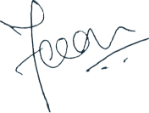Books on science for the lay person

Between 1920 and 2020, the average human lifespan doubled, from approx. 35 years to 70 years. More than 100 million people died from the Great Influenza outbreak that circled the globe a century ago. In comparison, roughly six million have died from Covid-19, on a planet with four times as many people. In all these situations, science has played a huge role. The word ‘science’, which comes from the Latin word scientia meaning ‘knowledge’, is a systematic enterprise that builds and organises knowledge in the form of testable explanations and predictions about the universe.
We have grown up learning science broadly categorised as physics, chemistry and biology (mathematics is closely related but considered a separate category). I loved physics and hated chemistry and biology in equal measure. Over the years, though, I have started to develop a deeper appreciation of science with a broader understanding of the natural world. An introduction to physics from the subject’s greatest teacher is now captured in the book The Feynman Lectures on Physics.
The legendary American physicist and Nobel Laureate Richard Feynman taught a two-year introductory course in physics in Caltech from 1961 to 1963. His famous lectures were not based on any textbooks, so they were sourced entirely from students who had written them down. One of the first science books that I read like a novel was Longitude by Dava Sobel. For centuries, sailors, lacking the ability to measure longitude, had been literally all at sea.
John Harrison was the 18th century genius who solved the problem. Sobel’s book, which tells the story of Harrison’s 40-year obsession with building his perfect timekeeper called the chronometer, is also a fascinating history of astronomy, navigation, and clockmaking. The Origin of Species (1859) by Charles Darwin is considered the most important science book. Darwin challenged many of the most deeplyheld beliefs of the Western world. Arguing for a material, not divine, origin of species, he showed that new species are achieved by ‘natural selection’.
A Brief History of Time: From the Big Bang to Black Holes, a book on theoretical cosmology by Stephen Hawking, has sold more than 25 million copies but it is often considered the least read, most bought book ever! Hence I would recommend the illustrated version which is an easier read. Lest I be accused of playing favourites, let me also recommend popular books on chemistry and biology: Understanding Chemistry by C N R Rao which is an elementary introduction to the subject, and the recent book of biologist and Nobel Laureate Paul Nurse called What Is Life? Nurse illuminates five ideas that underpin biology.
Gene Machine by Nobel Laureate ‘Venki’ Venkatraman Ramakrishnan is an engaging and witty memoir about his contributions to the discovery of the structure of the ribosome, and in doing so, he tells a story that highlights how science actually works. Reinventing India captures the fascinating evolution of India’s Science, Technology and Innovation (STI) landscape through some of Dr R A Mashelkar’s most inspiring and insightful lectures and essays. I was fortunate to meet him and was drawn towards his optimism about India’s future. India lags behind other countries when it comes to research in basic science. We need more bright young minds to take an interest in research. Equally, we need to spark an interest in science among the general population. And none do this better than popular books on science.

